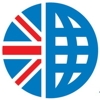
Travel businesses report turnover at just 22% of pre-pandemic levels
As additional travel restrictions come into force today (Tuesday 7 December), ABTA – The Travel Association says the latest measures could tip some companies over the edge, forcing them to close their doors for good, and calls on the Government to step up to provide financial support for the industry.
The Association says the latest changes come at a time when the industry is still reeling from the impact of travel measures, which have seen two summer and winter seasons lost to the pandemic, and that it is the smaller businesses who may find it the most difficult to get through this latest setback.
New data from ABTA1 lay bare the devastating impact the pandemic has had on travel prior to the latest changes:
- Employment across the travel industry has halved since the beginning of the pandemic in March 2020.
- The volume of new bookings taken across summer and autumn 20212 is reported, on average, to be at 28% compared to the same period in 2019.
- Companies report their turnover for the financial year at just 22% of pre-pandemic turnover levels on average.
It was only in recent weeks that the industry had started seeing the beginnings of a recovery following the relaxation of travel rules in October. But the return of pre-departure tests and PCR tests on or before day two of arrival, means the industry is back to where it was in the summer. Now a third winter season is under threat and once again there is weak consumer confidence in the run up to the peak booking period for next summer.
ABTA recognises that the Government will take the measures it feels are necessary to protect public health, but says that, as it is choosing to implement these measures, the Government has an obligation to bring forward measures of financial support for those worst affected.
Specific support for the travel industry has been entirely absent throughout the entire pandemic. Unlike other struggling sectors, such as hospitality and the arts, there has not been any dedicated funding for travel agents and tour operators – and many of these businesses have been rejected for general grant funding.
ABTA’s new research shows that half of travel businesses who applied for money from the Additional Restrictions Grants programme were denied and one in five travel companies have not received any grant funding at all since March 2020.
The Association says the Government also needs to look at the cost of testing which has proved for many prohibitively expensive throughout the pandemic. Market competition has failed to reduce prices, so the Government must step in and consider a price cap on PCR tests and the removal of VAT.
Mark Tanzer, Chief Executive of ABTA – The Travel Association said:
“Public health must come first but the Government should be looking to soften the blow to travel companies by providing financial support in the shape of grants and the return of furlough for travel staff.
“Ministers have previously explained to us that the Government’s approach is to enable the travel industry to trade their way out of this crisis, instead of providing support. However, it is clear they have now abandoned this approach. The Transport Secretary said himself last week that the re-introduction of pre-departure testing would kill off the travel industry, so the Government should be coming forward urgently with a package of financial support for travel agents and tour operators.
“We can’t go on like this with requirements changing but nothing to support those businesses worst affected. It is the smallest companies that are suffering the most – with travel bosses having already taken every step possible to keep their businesses going – including drastically cutting staff levels. Not only has there been an absence of any specific support for the sector, but many companies have either been excluded or refused access to the general grant funding – so it’s no wonder that many of our members feel totally abandoned by the Government.”
1All figures are from the Save Future Travel Coalition member survey (November 2021), which was conducted prior to the latest changes.
2Data period referred to are the months of June, July, August, September, October